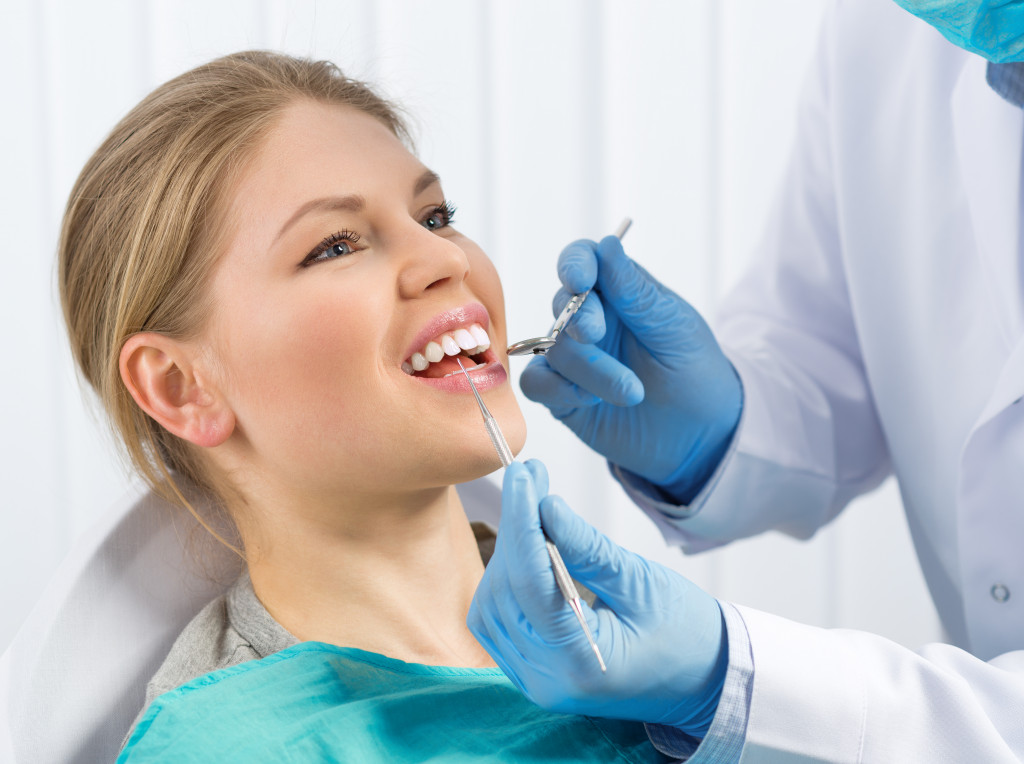- Gum disease and decay are serious, preventable dental issues that can lead to major health consequences if left untreated.
- Understanding the causes of gum disease is important to take preventive steps.
- Regular brushing, flossing, and professional dental cleanings help to keep teeth and gums healthy.
- A healthy diet and quitting smoking can also contribute to improved oral health.
- Using mouthwash in addition to brushing and flossing can help to kill bacteria while freshening breath.
Gum disease and decay are both dental issues that can be easily prevented. However, they are still very common and can lead to serious consequences if left untreated. Thankfully, there are many steps you can take to help reduce your risk of gum disease and decay. This blog post will discuss some simple and effective ways to keep your teeth and gums healthy.
Understanding Gum Disease
Periodontal disease, also known as gum disease, is a bacterial infection affecting the gums, bones, and tissues supporting the teeth. Gum disease is triggered by the accumulation of plaque and tartar near the teeth. Ignoring this condition can cause tooth loss and other health problems such as heart disease and diabetes.
Symptoms of gum disease include red, swollen, and bleeding gums, bad breath, and loose teeth. If you experience these symptoms, you should consult your dentist for a thorough examination and treatment.
Causes of Gum Disease
Gum disease may occur due to various factors, including poor oral hygiene, smoking, certain medications and medical conditions, genetics, and hormonal changes. Here are the common causes of this condition:
Tooth Loss

Tooth loss is a serious issue that can have many consequences on your oral health. One of the most significant risks associated with tooth loss is the increased likelihood of developing gum disease. This is because missing teeth create gaps that can allow harmful bacteria to accumulate and infect the gums.
Fortunately, many effective tooth replacement solutions can help you avoid this risk and maintain your oral health. From dental implants to dentures, there are plenty of options to choose from, depending on your needs and preferences. So if you’re dealing with tooth loss, it’s essential to take action and explore your options for tooth replacement.
Poor Oral Hygiene
Lack of consistent and effective oral hygiene is the leading cause of gum disease. Failing to brush and floss regularly allows harmful bacteria to accumulate in the mouth, leading to inflammation and infection. Regular brushing, flossing, and professional dental cleanings can help prevent gum disease.
Prevention Tips
The good news is that gum disease is preventable. Here are some simple steps you can take to protect oral health:
Brush and Floss Daily
One of the most important things you can do to reduce your gum disease and decay risk is to brush and floss your teeth daily. Brushing removes plaque, which is the leading cause of gum disease and decay. Flossing helps to remove food particles and plaque from between your teeth and along your gum line, where your toothbrush can’t reach.
Get Regular Dental Cleanings
Even if you brush and floss regularly, getting a professional dental cleaning at least twice a year is essential. A dental cleaning can help remove stubborn plaque and tartar buildup that you may not be able to remove on your own. Your dentist can detect any signs of gum disease or decay early on before they become more serious problems.
Eat a Healthy Diet

Your diet can also play a role in your oral health. Sugary and processed foods can contribute to plaque buildup and increase your risk of gum disease and decay. Instead of focusing on weight loss, prioritize consuming a diet rich in nutrients, including fresh fruits, vegetables, lean proteins, and whole grains. Drinking plenty of water can also help to flush away food particles and bacteria from your mouth.
Quit Smoking
Smoking is a significant risk factor for gum disease and decay. It can also stain your teeth, cause bad breath, and increase your risk of oral cancer. Quitting can significantly improve your oral health and overall well-being if you smoke.
Use Mouthwash
Mouthwash can help to kill bacteria and freshen your breath, but it should not be used as a substitute for brushing and flossing. Look for a mouthwash specifically designed to help prevent gum disease and decay. Some mouthwashes contain fluoride, which can help to strengthen your tooth enamel and prevent cavities.
The Bottom Line
Gum disease and decay are preventable dental issues that can lead to serious consequences if left untreated. By following these simple steps, you can help to reduce your risk of gum disease and decay and maintain a healthy smile. Remember to brush and floss daily, get regular dental cleanings, eat a healthy diet, quit smoking, and use mouthwash to help keep your teeth and gums healthy. Taking care of your oral health can also contribute to your overall well-being and quality of life.

